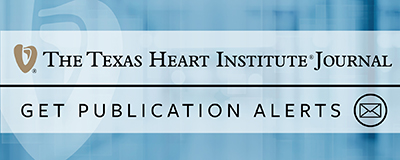The Ali Massumi Cardiac Arrhythmia Symposium: CME Information
Overview
Cardiac electrophysiology has evolved from primarily managing arrhythmias with drugs to using various nonpharmacologic methods to detect and terminate them. Among these are treatment options for patients with ventricular tachycardia and fibrillation, the chief cause of sudden cardiac death. Pharmacotherapy has proved inadequate for many patients. Implantable cardioverter-defibrillators (ICDs) can effectively terminate malignant ventricular arrhythmias and improve survival in high-risk populations.
Methods for managing patients with atrial fibrillation (AF) continue to evolve. Guidelines for anticoagulant therapy have been updated and expanded. Nonpharmacologic therapies can prevent embolic strokes in patients who are at increased risk of bleeding. Catheter ablation for AF is now mainstream and low risk, and force-sensing catheters have improved outcomes and reduced complications. Surgical management is recommended for paroxysmal or persistent AF during concomitant heart surgery. Surgical ablation can be considered in patients whose AF is refractory to antiarrhythmic drugs. Nevertheless, reliable evidence-based recommendations for surgical management of AF are still needed.
Managing arrhythmias in special populations, including pregnant women and athletes, poses special problems. In pregnant women, it is complicated by the need to avoid harming the mother and the fetus. During pregnancy, only severe symptoms or hemodynamic compromise should be treated.
The Ali Massumi Cardiac Arrhythmia Symposium is designed to provide electrophysiologists, cardiologists, internists, and associated professionals with state-of-the-art information on the fundamental mechanisms of cardiac arrhythmias and with best practices in clinical diagnosis, evaluation, and management of abnormal heart rhythms.
Educational Objectives
After this activity, the participant should be able to:
-
Cite guidelines for the management of AF, including stroke risk factors.
-
Discuss treatments for reducing the risk of stroke in patients with nonvalvular AF.
-
Discuss the management of arrhythmia in special populations, including pregnant women and athletes.
-
Understand how to improve the diagnosis and management of ventricular tachycardia and thus lessen the risk of sudden death and improve quality of life.
-
List the complications of ICD therapy and ways to prevent and manage them.
Target Audience
Cardiologists, cardiologists with an interest in electrophysiology, cardiac electrophysiologists, internists with an interest in cardiology, cardiology fellows, cardiac catheterization laboratory technicians, and family and general practitioners.
Accreditation
Texas Heart Institute is accredited by the Accreditation Council for Continuing Medical Education to provide continuing medical education for physicians.
Credit Designation
Texas Heart Institute designates this journal-based CME activity for a maximum of 4 AMA PRA Category 1 Credits™. Physicians should claim only the credit commensurate with the extent of their participation in the activity. The articles marked with a ★ are designated for CME credit.
Term of Approval
15 October 2021 through 15 October 2022
Disclosure of Financial Relationships With Commercial Interests
The following individuals have reported no interest or other relationship(s) with companies that may relate to the educational content of this activity:
Mihail Chelu, MD, PhD
Sophia Huang, BA
Jitae A. Kim, MD
Mark S. Link, MD
Abdi Rasekh, MD
Mehdi Razavi, MD
Payam Safavi-Naeini, MD
Naseem Zarah Sorurbakhsh, DO
Darren C. Tsang, MD, MPH
The Planning Committee members have nothing to disclose.
The THI CME Staff have nothing to disclose.
The Program Reviewers have nothing to disclose.
Repurposing Statement
If you previously completed and received credit for the live CME-accredited symposium titled The Ali Massumi Cardiac Arrhythmia Symposium on 15 February 2020, please note that you will not receive credit for completing this activity. Participants who take part in an identical activity, even to validate learning or to clarify specific topics, cannot claim, nor will the Texas Heart Institute award, duplicate credit for the activity.
Method of Participation and Receipt of CME Certificate
To obtain CME credit for the 2020 Ali Massumi Cardiac Arrhythmia Symposium, Texas Heart Institute Journal section, you must:
-
Carefully read the CME-designated articles marked with a ★ in this issue of the Journal.
-
Answer the assessment survey here. A grade of 80% must be attained to receive CME credit.
-
Complete a brief evaluation at the same link.
-
Claim your CME credit. You will be directed to the CME Tracker portal, where you can print and save a certificate indicating the number of credits/contact hours earned for participation in the program.
Evaluation/Feedback
For assistance or feedback on this activity, please contact the Texas Heart Institute Office of CME by telephone (832-355-9100) or by email (cme@texasheart.org).
